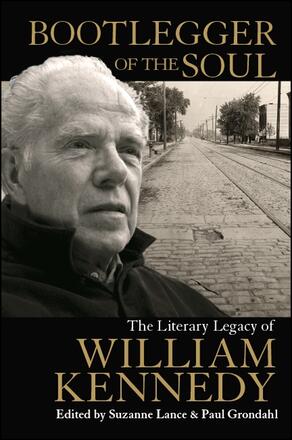
Bootlegger of the Soul
The Literary Legacy of William Kennedy
Alternative formats available from:
A celebration of the Pulitzer Prize–winning novelist who put Albany on the world’s literary map.
Description
The award-winning novelist William Kennedy is perhaps best known for his Albany Cycle, a series of novels that put Albany on the world's literary map alongside James Joyce's Dublin, Gabriel García Márquez's Macondo, and William Faulkner's Yoknapatawpha County. Bootlegger of the Soul offers a fresh and authoritative overview of Kennedy's long literary career and his astonishing trajectory from journalist to struggling novelist to Pulitzer Prize winner. Included here are reviews, interviews, and scholarly essays on Kennedy's work, as well as essays, speeches, a play, and a short story by the author himself, together with more than fifty historical and personal photographs. Lively, readable, and brimming with the infectious wit and lyrical prose that animates Kennedy's novels, Bootlegger of the Soul is a celebration of a writer still working hard at his craft at age ninety.
Suzanne Lance is Associate Director of the New York State Writers Institute at the University at Albany, State University of New York. Paul Grondahl is Director of the New York State Writers Institute and is the author of several books, including Mayor Corning: Albany Icon, Albany Enigma and I Rose Like a Rocket: The Political Education of Theodore Roosevelt.
Reviews
"Bootlegger of the Soul captures Kennedy's impact as a multitalented author through essays, interviews, and reviews, and serves as a biography, memoir, anthology, and tribute in one. " — Hudson River Valley Review
"There are no dead sentences in [Kennedy's] work. His language is vigorous, full of energy … He's just a pure writer. " — Saul Bellow
"William Kennedy's cycle of Albany novels may be one of the most exuberant literary feats of the past half-century. " — Colum McCann
"Kennedy's art is an eccentric triumph, a quirky, risk-taking imagination at play upon the solid paving stones, the breweries, the politicos, and pool sharks of an all-too-actual city. " — Thomas Flanagan